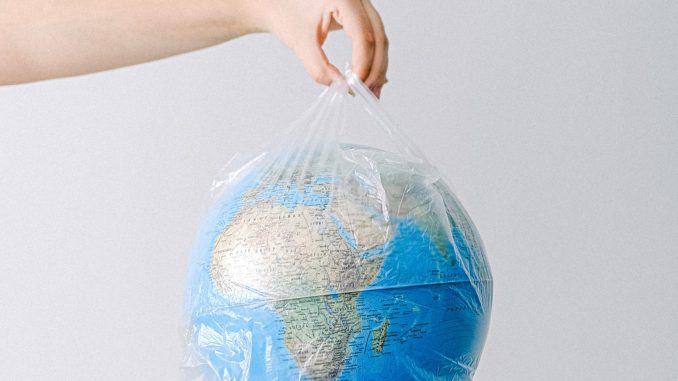
Oct. 1 marked the first day of Washington’s plastic bag ban; the price of forgetting your bags at home is now eight cents per bag. The ban, originally set to begin earlier in the year in January, was postponed by the governor because there were not enough compliant paper and plastic bags available at the time. Now that the ban is finally in place, here is everything you need to know.
The ban prohibits the use of single-use plastic carry-out bags (the ones you typically get from Safeway or Marshalls) by restaurants, retail, small vendors and grocery stores. Food banks and pantries as well as individuals receiving food stamps or other forms of government aid are exempt from this ban. The ban also requires businesses to charge an eight-cent fee (per bag) for bags made from acceptable materials, such as paper and thick reusable plastic. According to the Department of Ecology, the fee is not a tax; it is a sale kept in its entirety by the seller. The eight-cent fee is meant as an incentive for customers to bring their own bags as well as a way to recoup the cost of these more durable bags. Despite the availability of these thicker, multi-use plastic bags, the Department of Ecology strongly recommends you bring your own reusable bags.
Why are some plastic bags still allowed? The law now states that a plastic bag must be at least 2.25 mil thick. A “mil” is a unit of measurement used in manufacturing; one-thousandth (.001) of an inch. The single-use plastic bags that are banned are a mere 0.5 mil, much thinner than is now required by law. In 2025, Washington state law will require plastic bags to have a thickness of 4 mils. Theoretically, thicker plastic bags can be used multiple times, which prevents as much plastic from ending up in a landfill, hence why they are still allowed. Additionally, they are far more durable than single-use plastic bags; you don’t have to worry about your items poking holes through the bag or the handles breaking from the weight.
How is the ban being enforced? Anyone can report a business for not adhering to the ban through the Department of Ecology website. Repeat violations and non-compliance with the ban can result in a $250 fine.
In 2018, the United States Environmental Protection Agency (EPA) found that in 2018, 4.20 million tons of plastic bags, sacks and wraps were created, and a mere 420,000 tons of this were recycled. According to the Seattle Public Utilities website, Washington residents use more than two billion single-use plastic bags each year, and Seattle by itself uses about 292 million plastic bags yearly. Only 13 percent of these are recycled. Many of these un-recycled bags end up beside the roads, in yards and parking lots, as well as in the Puget Sound. Plastic products of all kinds are dangerous to wildlife, but particularly bags. Seabirds often mistake floating plastic bags for food, even feeding them to their children. However, not just seabirds are at risk of plastic consumption. In 2010, Environment Washington found a dead gray whale beached in West Seattle with 20 plastic bags in its stomach. The impact that these bags have on our wildlife is astronomical, and this ban is intended to help protect our rivers, streams and ocean.
Along with being incredibly harmful to wildlife, the Department of Ecology states that “harmful chemicals are released when plastics are produced, used, incinerated or slowly disintegrate into microscopic particles. Plastic bags are also a major contaminant in Washington’s recycling system that clog sorting machines and put worker safety at risk.” Although retailers can still provide plastic bags made from thicker materials, the Department of Ecology strongly encourages bringing your own reusable bags to minimize your environmental impact.
Most establishments sell reusable bags including Trader Joe’s which offers cold bags as well as normal cloth bags. Shopping online for bags is also an option — you can find a bag that suits your personality with a cool design or lots of bright colors. This ban is a sign to go and purchase your own reusable bags! A little tip: leave them in your car so you don’t forget them at home, or add “bring bags” to your grocery list.


